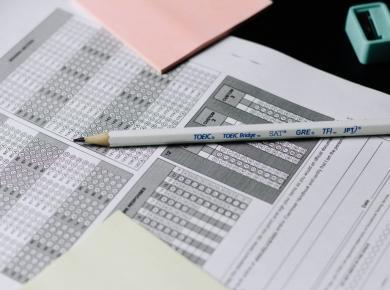Table of Contents
- What Is the Difference Between Independent vs. Dependent Students?
- When Are You Considered Independent?
- When Are You Considered Dependent?
- What If You Have Special Circumstances?
- How Does Your Dependency Affect Eligibility For Financial Aid
- The Bottom Line
- Frequently Asked Questions (FAQs)
- What is the difference between an independent and a dependent student?
- How does one determine if they are an independent student?
- Why does it matter if I am classified as independent or dependent?
- Can I appeal my classification if I believe I should be considered independent?
- What financial information do I need to provide as a dependent student?
- If I am a dependent student now, can I become independent later?
- What should I do if my parents refuse to provide financial information?
Are you a student wondering about the differences between independent and dependent status? Knowing the difference between these two can significantly affect your financial aid eligibility and opportunities for scholarships and grants.
So, what exactly is the difference between an independent vs. dependent student? And how does it affect your finances? Let’s dive into it.
What Is the Difference Between Independent vs. Dependent Students?
In higher education, students are classified as independent or dependent, which refers to their financial dependence on their parents or legal guardians. The main difference between the two is the method used to determine their financial requirements when they request financial assistance.
When applying for financial aid, dependent students are required to provide financial information about their parents. Their eligibility for financial aid is determined based on their financial situation and their parent’s income, assets, and family size.
Independent students don’t need to provide their parent’s financial information, and their aid eligibility is determined based on their income, assets, and family size.
When Are You Considered Independent?
An independent student is someone who meets one or more of the following criteria:
- At least 24 years old
- Married
- A graduate or professional student
- A veteran or active duty member of the U.S. armed forces
- A ward of the court, or someone who was a ward of the court until age 18
- Has legal dependents other than a spouse
- Orphaned or was in foster care since age 13
- Homeless or at risk of becoming homeless
Students who meet any of these criteria are considered independent and will be evaluated for financial aid based solely on their income and assets (and their spouse’s, if married).
When Are You Considered Dependent?
A dependent student does not meet any criteria to be considered independent. Typically, dependent students are under 24 years old, unmarried, without dependents, and not veterans or active duty members of the U.S. armed forces.
If a student is considered dependent, their eligibility for financial aid will depend on their family’s income, assets, and their own. It means that the financial information of the student’s parents or legal guardians will be considered when determining the amount of aid the student is eligible to receive.
What If You Have Special Circumstances?
When you have exceptional circumstances that affect your financial aid eligibility, you can receive financial aid as an independent student, even if you would otherwise be considered a dependent student.
Here are a few examples of such exceptional circumstances.
You are a U.S. citizen but not your parents
As a U.S. citizen, you can access federal financial aid regardless of your parents’ citizenship status. If you are a citizen, you can apply for federal financial aid without being affected by your parents’ immigration status. The Free Application for Federal Student Aid (FAFSA) form does not require information about your parents’ citizenship status.
You can enter all zeros in the appropriate fields if your parents do not have a Social Security number. However, please note that your parents cannot sign the FAFSA electronically since a valid Social Security number is required to create an FSA ID.
It’s important to note your parents’ citizenship or immigration status doesn’t affect your eligibility for financial aid. The FAFSA is not used to gather information about the citizenship or immigration status of the applicant or their parents but to help students apply for financial assistance.
You have no contact with your parents
Suppose a student is dependent but unable to include their parent’s financial information on the Free Application for Federal Student Aid (FAFSA), such as in cases where the parents are abusive or have disowned the student.
In that case, the student can indicate on the FAFSA that they face exceptional circumstances that make obtaining parental information impossible. Consequently, the student can proceed with the FAFSA application without such information.
However, the Expected Family Contribution (EFC), which reflects the amount that the family must contribute towards the student’s educational expenses, will not be generated in this scenario.
As a result, the student must communicate with the financial aid office of their institution, which will make the final determination regarding the student’s dependency status. Additionally, the student might be requested to provide supplementary documentation or information regarding their unique circumstances.
Your parents won’t help
In the event that parents are uncooperative in providing financial information for their dependent student’s FAFSA application, the student can indicate their inability to provide such information by selecting the corresponding option.
However, the student must promptly communicate with their financial aid office. Depending on what the office of financial assistance determines, the student may qualify for unsubsidized student loans, subject to applicable student loan limits.
How Does Your Dependency Affect Eligibility For Financial Aid
Your dependency status can significantly impact your eligibility for financial aid, including FAFSA and scholarships/grants. It’s important to note that eligibility for financial aid is complex, and a range of factors beyond your dependency statuses, such as academic performance, residency status, and the availability of funds, affect it.
We recommend that you work closely with your school’s financial aid office to understand your eligibility for different financial aid types and explore all available options for funding your education.
The FAFSA
For the FAFSA, your dependency status determines whether your parents’ income and assets will be considered when calculating your Expected Family Contribution (EFC), used to determine your eligibility for federal financial aid programs such as Pell Grants, Federal Work Study, and Direct Loans.
✅ Request information on BAU's programs TODAY!
If you are considered a dependent student, your parent’s information will be required on the FAFSA and used to calculate your EFC. However, only your income and assets will be enough if you are an independent student.
Scholarships and grants
Some programs have specific eligibility requirements for scholarships and grants based on your dependency status. For example, some scholarships may be available only to dependent students, while others may be restricted to independent students.
In general, independent students have greater scholarship and grant opportunities available since they are evaluated based solely on their income and assets, making them eligible for need-based aid that is not available to dependent students.
The Bottom Line
Understanding the difference between dependent vs. independent students is crucial for students seeking college financial aid. While dependent students must provide information about their parent’s income and assets when applying for financial aid, independent students are evaluated solely on their income and assets.
The criteria for determining dependency status are based on specific guidelines established by the federal government. Still, exceptions can allow a student to be considered independent.
Frequently Asked Questions (FAQs)
What is the difference between an independent and a dependent student?
An independent student is someone who is financially self-sufficient and does not rely on their parents or guardians for support. On the other hand, dependent students rely on their parents or guardians for financial assistance and must include their family’s financial information in the FAFSA.
How does one determine if they are an independent student?
You may qualify as an independent student if you meet certain criteria, such as being over 24, married, having dependents, being a veteran, or being an orphan or ward of the court. Schools also consider other circumstances, such as homelessness or being in foster care.
Why does it matter if I am classified as independent or dependent?
Your classification affects the financial aid process. Independent students typically have a higher chance of receiving financial aid since their eligibility is based solely on their own income and assets, not their parents.
Can I appeal my classification if I believe I should be considered independent?
Yes, if your situation warrants it, you can appeal to your school’s financial aid office. Be prepared to provide documentation supporting your case.
What financial information do I need to provide as a dependent student?
As a dependent student, you must provide your parents’ financial information, including their income, assets, and tax returns, on the FAFSA.
If I am a dependent student now, can I become independent later?
Yes, your status can change. If your circumstances change (like turning 24, getting married, or other qualifying conditions), you can be classified as an independent student in future financial aid applications.
What should I do if my parents refuse to provide financial information?
If your parents are unwilling to provide their financial information, you should contact your school’s financial aid office. They can guide you on possible options and alternative documentation you might need to provide.












